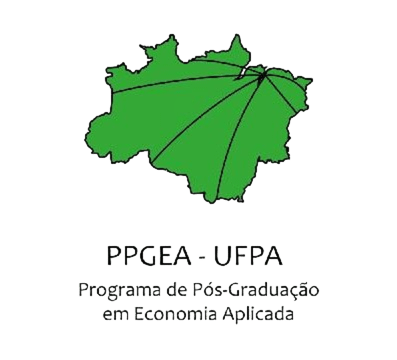By Andressa Lima (UFPA/CFC‑GS)
Climate finance has emerged as a cornerstone of the global environmental agenda. In Argentina, this issue is particularly strategic given the country’s socioeconomic vulnerabilities and exposure to climate risks. At its core, climate finance refers to public and private financial flows aimed at reducing greenhouse gas emissions or adapting to climate change impacts. As a signatory to the Paris Agreement, Argentina has endeavored to tap into various funding sources. However, recent trajectories show that while the country has made meaningful progress in mobilizing resources, institutional setbacks and political decisions have undermined its ability to remain a relevant actor within global climate governance spaces.
Graphic 1. Climate Finance to Argentina (2016–2023)

Compiled by the author based on OECD CRS – Climate‑related Development Finance. Available in the CFC‑GS Climate Finance Tracker.
Between 2016 and 2023, Argentina received substantial climate finance—approximately US $450 million in 2016, surging to over US $2.3 billion in 2017. After a decline through 2020 (reaching about US $580 million), levels rebounded in 2021, peaked at US $2.67 billion in 2022, and totaled US $2.16 billion in 2023. Despite fluctuations, the country has demonstrated relative success in accessing climate-related funding.
Graphic 2. Climate Finance by Type of Intervention in Argentina

Compiled by the author based on OECD CRS – Climate‑related Development Finance. Available in the CFC‑GS Climate Finance Tracker.
The analysis by type of intervention shows that, throughout the historical series, mitigation has been the main destination of international climate finance received by Argentina. In 2017, for example, mitigation funding exceeded USD 1.2 billion, accounting for the largest share of the total received that year. This pattern is repeated notably in 2022, when mitigation resources surpassed USD 2.29 billion — significantly higher than those allocated to adaptation (around USD 1.1 billion) and cross-cutting actions (approximately USD 727 million). Although adaptation showed relative growth between 2020 and 2023, it remained secondary in absolute terms. The predominance of mitigation aligns with the prioritization of energy transition and emissions reduction projects, although Argentina’s increasing vulnerability to extreme climate events underscores the urgency of scaling up adaptation investments, particularly in strengthening health systems, resilient agriculture, water infrastructure, and protection of vulnerable communities.
Despite these positive developments, recent political decisions have posed new challenges. In November 2024, President Javier Milei ordered the withdrawal of Argentina’s official delegation from COP29 in Baku—a conference widely regarded as pivotal for climate finance, particularly for setting the New Collective Quantified Goal (NCQG), which raises the annual global funding target from US $100 billion to US $300 billion by 2030 and up to US $1.3 trillion by 2035. This move excluded Argentina from key financial negotiations and triggered strong pushback from civil society, experts, diplomats, and subnational governments.
Coverage by ElDiarioAR1 emphasized that this withdrawal represents a profound setback in Argentina’s ability to influence global decisions directly affecting its climate future and development path. Climate policy expert Stephanie Cabovianco warned the move “not only isolates us internationally, but also limits our ability to access climate finance on fair terms, something essential for a developing country like ours.” Bruno Sirote of Jóvenes por el Clima added that “there’s $1.5 trillion at stake,” and by stepping back, Argentina forfeits access to binding decisions under the Paris Agreement. Observers noted that the absence signals a worrying ideological shift in Argentina’s international priorities, jeopardizing both resource access and national sovereignty over strategic climate choices.
The decision abruptly interrupted nearly three decades of active Argentine participation in global climate negotiations. The Fundación Ambiente y Recursos Naturales (FARN)2 characterized it as unprecedented, with serious implications for Argentina’s global positioning. By stepping away from COP29—when countries of the Global North were expected to formally commit to funding the Global South—Argentina weakened its international credibility, diminished its ability to claim finance on equitable terms, and departed from its historic diplomatic tradition of amplifying the needs of Southern nations in international forums.
In response, Argentina’s subnational governments mobilized ambitiously. During the July 2025 International Climate Conference (CCI25)3 in Córdoba, governors from six provinces—Santa Fe, La Pampa, Jujuy, Chubut, Córdoba, and Entre Ríos—signed a Regional Commitment charting a joint course ahead of COP30 in Belém. Joined by environmental authorities from fifteen additional provinces and the City of Buenos Aires, they formed a robust subnational coalition. The agreement prioritizes multilevel governance, equitable climate finance, biodiversity protection, climate justice, and territorial equity. Hosted by the provincial government of Córdoba and co-organized by ICLEI South America, CCI25 signaled the consolidation of local governments as central actors in regional climate action, positioning them to represent Argentina in absence of federal leadership.
This shift illustrates that climate finance is no longer merely an environmental or diplomatic priority—it is central to sustainable development strategies. Argentina’s geographic diversity and exposure to climate hazards make international resources indispensable for safeguarding water, energy, and food security, and for fostering green jobs and technologies. However, accessing these funds requires institutional stability, technical capacity, governance structures, and an active presence in negotiation forums.
Recent experience underscores that only a coordinated, sustained approach involving all government levels enables Argentina to receive climate finance internationally as a legitimate and strategic actor. As COP30 approaches, Argentina faces a critical moment to reposition itself. Rebuilding internal consensus and enhancing federative coordination around sustainable and inclusive commitments is essential. Failing to seize this moment could threaten the country’s access to vital international resources and isolate it in a global landscape accelerating toward ecological transformation.
- ElDiarioAR. COP29 sin representación Argentina: “Limita nuestra posibilidad de acceder a financiamiento climático en condiciones justas”. Available at: https://www.eldiarioar.com/sociedad/medio-ambiente/cop29-representacion-argentina-limita-posibilidad-acceder-financiamiento-climatico-condiciones-justas_1_11826168.html. ↩︎
- Fundación Ambiente y Recursos Naturales (FARN). Argentina se fue de la COP29 abandonando oportunidades de financiamiento para abordar la crisis climática. Available at: https://farn.org.ar/argentina-se-fue-de-la-cop29-abandonando-oportunidades-de-financiamiento-para-abordar-la-crisis-climatica/. ↩︎
- ICLEI. Thanks to regional commitments, Argentina will not “disappear from the climate agenda”. Available at: https://iclei.org/news/ahead-of-cop30-subnational-governments-in-argentina-make-their-case-for-multilevel-climate-action-with-bold-regional-commitment/ ↩︎










